Is It Illegal to Collect Rainwater in your state?
Discover the laws and regulations surrounding rainwater harvesting in the US and whether it’s legal for you to collect rainwater in your state.
While most states have no restrictions, a few like Colorado, Utah, Nevada, Illinois, and Arkansas have stringent regulations in place.
However, many states actively encourage rainwater harvesting as a valuable resource for property owners. You have the freedom to utilize rainwater that falls on your property, and it’s unlikely to become illegal. In fact, more and more states are embracing rainwater harvesting.
Find out if you can start collecting rainwater in your state today!
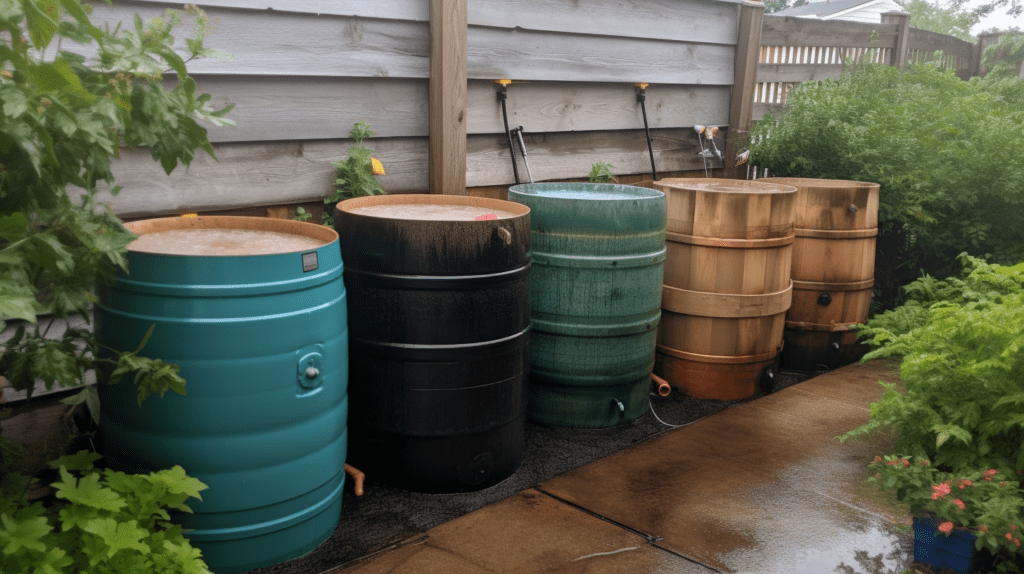
Key Takeaways
- Rainwater harvesting is generally legal in most states, with a few exceptions like Colorado, Utah, Nevada, Illinois, and Arkansas that have stricter regulations in place.
- Many states actively encourage rainwater harvesting as a valuable resource for property owners, recognizing its benefits and providing incentives for its use.
- Rainwater harvesting offers numerous benefits, including water conservation, reduced reliance on municipal water supplies, and cost savings on water bills.
- Rainwater can be used for various purposes such as irrigation, gardening, and even indoor non-potable use with proper filtration and treatment.
- Implementing rainwater harvesting systems is relatively straightforward and can be done on both residential and commercial properties.
- It’s important to familiarize yourself with the specific regulations and guidelines in your state to ensure compliance with rainwater harvesting practices.
- Explore available resources and incentives provided by your state or local government to support rainwater harvesting initiatives.
- By collecting rainwater, you can contribute to sustainable water management and conservation efforts, mitigating the effects of droughts and water scarcity.
- Organizations like ARCSA actively collaborate with government entities to support and promote rainwater harvesting practices.
- Don’t hesitate to start collecting rainwater on your property and experience the advantages it brings. Embrace rainwater harvesting to conserve water and promote a more sustainable future.
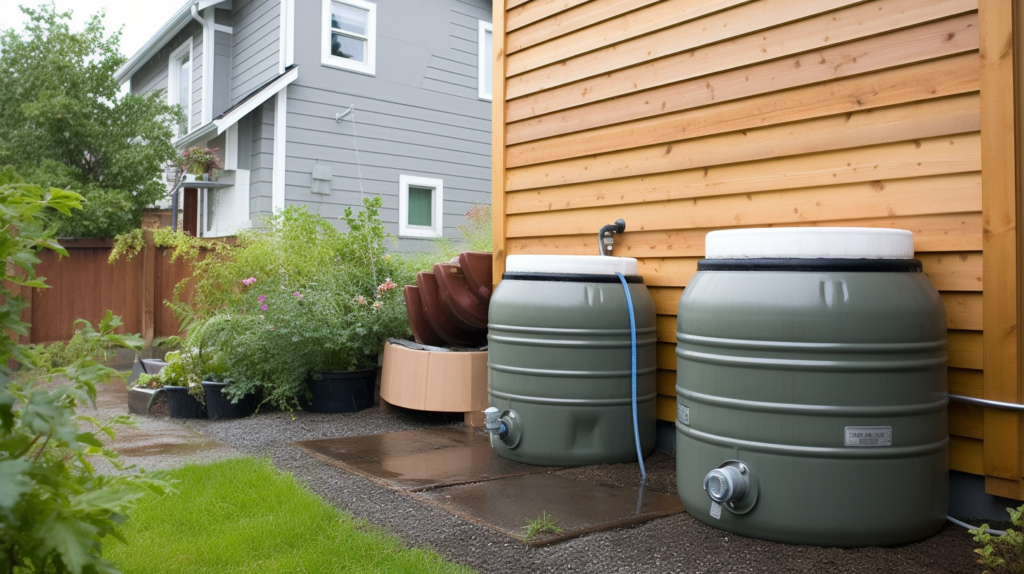
Overview of Rainwater Harvesting Laws
Rainwater harvesting laws vary from state to state, but in most states, they aren’t heavily regulated and are actually encouraged by state governments. Rainwater, as a resource, belongs to the property owner, allowing homeowners to freely utilize the rainwater that falls on their property.
However, there are a few states, such as Colorado, Utah, Nevada, Illinois, and Arkansas, that have stricter regulations in place. These regulations are primarily based on old statutes and codes, and their purpose is to ensure the proper treatment of harvested rainwater.
Despite these stricter regulations in certain states, it’s important to note that rainwater harvesting isn’t expected to become illegal. On the contrary, more states are recognizing its benefits and are even providing incentives for its use.
For example, organizations like ARCSA (American Rainwater Catchment Systems Association) actively collaborate with government entities to support and promote rainwater harvesting practices.
By implementing rainwater harvesting systems, homeowners can’t only reduce their reliance on municipal water supplies but also contribute to water conservation efforts. Harvested rainwater can be used for various purposes, including irrigation, landscaping, and even indoor non-potable uses such as toilet flushing.
Not only does this help conserve water resources, but it also reduces the strain on existing water infrastructure.
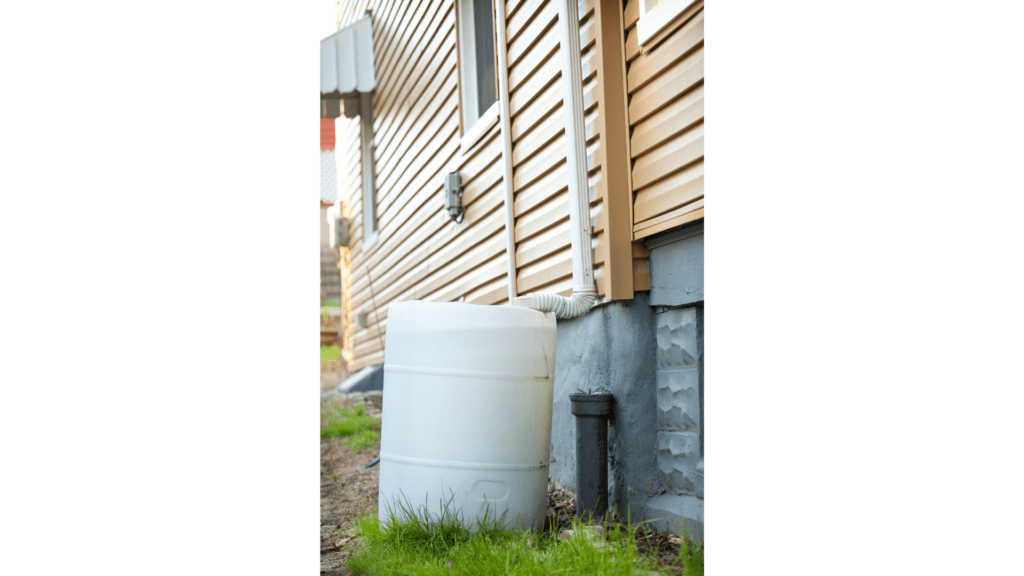
States With Heavy Regulations
Rainwater harvesting regulations vary among states in the United States. While some states have heavy regulations in place, rainwater harvesting isn’t expected to become illegal.
In states like Colorado, Utah, Nevada, Illinois, and Arkansas, there are strict regulations governing rainwater harvesting practices. These regulations aim to ensure water conservation, protect the environment, and ensure effective water governance.
For example, Colorado only allows a maximum of two rain barrels with a combined capacity of 110 gallons or less per household.
In Arkansas, rainwater harvesting systems must adhere to plumbing codes and be designed by a licensed engineer. Additionally, these systems can only be used for non-potable purposes. These regulations are often based on riparian rights and historical statutes and codes.
However, it’s important to note that rainwater harvesting isn’t discouraged in all states. In fact, many state governments encourage and support rainwater harvesting initiatives. More states are recognizing the benefits of rainwater harvesting and are even providing incentives to promote its adoption.
By harvesting rainwater, individuals and communities can reduce their dependence on traditional water sources and contribute to water conservation efforts. Rainwater can be used for various purposes such as irrigation, landscaping, and even toilet flushing.
It not only helps to conserve water but also reduces the strain on local water supplies.
States That Encourage Rainwater Harvesting
Rainwater harvesting is actively encouraged by many states as a sustainable water management practice. These forward-thinking states understand the importance of conserving water resources and actively promote the collection of rainwater for various purposes.
California, for example, provides financial incentives and rebates for rainwater harvesting systems through the Water Resources Development Act of the United States.
In Colorado, the Colorado Water Conservation Board (CWCB) offers education and resources to promote rainwater harvesting. Although Colorado is highly regulated when it comes to rainwater harvesting, they still encourage collection.
Texas collaborates with organizations like the American Rainwater Catchment Systems Association (ARCSA) to raise awareness and provide training programs.
By actively supporting rainwater harvesting, these states contribute to sustainable water management practices and help conserve precious water resources. Rainwater harvesting offers numerous benefits, including reducing water consumption, managing stormwater runoff, and improving water quality.
It allows individuals to take advantage of natural precipitation and reduce their reliance on traditional water sources. This helps alleviate the strain on municipal water supplies and can lead to significant cost savings for both individuals and communities.
Furthermore, rainwater harvesting can have positive environmental impacts, such as reducing the demand for energy-intensive water treatment processes and mitigating the impact of urbanization on natural water systems. By promoting rainwater harvesting, these states are taking proactive measures to ensure a more sustainable and resilient water future.
Rainwater Harvesting Chart Per State
| STATE | REGULATION | ENCOURAGEMENT | DESCRIPTION |
| Alabama | No | No | There are no regulations governing water collection. |
| Alaska | No | No | For many residents, rainwater harvesting is the main method of water collection. |
| Arizona | No | No | Legislation permits municipalities to fund rainwater harvesting systems. |
| Arkansas | Yes | No | State code permits homeowners to collect rainwater under specified conditions. |
| California | Yes | No | Under the 2012 Rainwater Capture Act, various entities are permitted to collect rainwater for certain uses. |
| Colorado | Yes | No | House Bill 16-1005 states that homeowners are allowed to collect a maximum of two rain barrels with a combined capacity of 110 gallons. That water may also only be used outdoors. |
| Connecticut | No | Yes | No regulation exists on rainwater collection, and the state encourages its homeowners to do so. |
| Delaware | No | Yes | There are no regulations governing water collection. |
| Florida | No | Yes | Florida possesses no rainwater harvesting restrictions and has incentive and rebate programs |
| Georgia | Yes | No | Rainwater is tightly regulated by the Department of Natural Resources and must only be applied for outdoor use. |
| Hawaii | No | Yes | Rainwater harvesting is highly encouraged by Hawaii’s local government |
| Idaho | Yes | No | Homeowners are allowed to capture and use rainwater as long as it does not re-enter natural waterways. |
| Illinois | Yes | No | According to the Plumbing-Rainwater Systems Bill SB0038, rainwater harvesting systems must be up to state plumbing code, and the water must be used for non-potable purposes. |
| Indiana | No | Yes | There are no restrictions on rainwater harvesting, and it’s encouraged by the state. |
| Iowa | No | No | No rainwater harvesting regulations exist in the state at this time. |
| Kansas | No | No | Rainwater harvesting is legal in Kansas for domestic use. |
| Kentucky | No | No | No rainwater harvesting regulations exist in the state at this time. |
| Louisiana | Yes | No | Rainwater harvesting is legal in Louisiana as long as the tank holding or capturing the rainwater is properly covered and sealed. |
| Maine | No | No | No rainwater harvesting regulations exist in the state at this time. |
| Maryland | No | Partially | Maryland does not currently have any regulations on rainwater harvesting, with some counties offering incentive programs. |
| Massachusetts | No | Yes | Massachusetts does not have any restrictions on rainwater harvesting and encourages its residents to do so. |
| Michigan | No | Yes | It’s legal to harvest rainwater in Michigan, with the state encouraging its residents to do so. |
| Minnesota | No | Yes | Minnesota allows and encourages its residents to harvest rainwater. |
| Mississippi | No | No | No rainwater harvesting regulations exist in the state at this time. |
| Missouri | No | Yes | There are no restrictions or regulations on water harvesting in Missouri, and the state encourages its homeowners to do so. |
| Montana | No | Yes | The state of Montana does not regulate or restrict rainwater harvesting, actively encouraging its residents to do so. |
| Nebraska | No | Yes | There are no regulations governing water collection. |
| Nevada | Yes | No | Rainwater collection was illegal in Nevada until 2017. However, Bill Number 138 now states that rainwater can be collected for domestic use as long as it’s non-potable. |
| New Hampshire | No | Yes | New Hampshire encourages its residents to collect rainwater and places no restrictions or regulations on its harvesting |
| New Jersey | No | Yes | New Jersey Assembly Bill 2442 offers rebate programs for homeowners that use specific harvesting methods. |
| New Mexico | No | Yes | There are no regulations governing water collection. |
| New York | No | Yes | New York does not restrict or regulate rainwater harvesting. |
| North Carolina | Yes | No | Rainwater harvesting is allowed with specific regulations, such as the water being used for non-potable purposes, pipes for rainwater harvesting being labeled as purple, and collection tanks being marked as non-potable water. |
| North Dakota | No | Yes | North Dakota does not restrict or regulate rainwater harvesting and encourages its citizens to do so. |
| Ohio | Yes | No | According to Ohio Rev. Code §3701. 344, rainwater can be harvested for potable and non-potable purposes for any household or group of fewer than 25 people, with restrictions on what materials can be used in its collection. |
| Oklahoma | No | No | There are no restrictions or regulations on harvesting rainwater in Oklahoma at this time. |
| Oregon | Yes | No | Rainwater collection is legal, often requiring a permit and restricting homeowners to outdoor systems (such as through rooftop collection). |
| Pennsylvania | No | Yes | Harvesting rainwater in Pennsylvania has no restrictions or regulations and is encouraged. |
| Rhode Island | No | Yes | State Bill 7070 provides tax incentives for up to 10% of the cost of the installation of cisterns. |
| South Carolina | No | Yes | Rainwater harvesting has no restrictions or regulations in South Carolina, with the state encouraging its practice. |
| South Dakota | No | No | No rainwater harvesting regulations exist in the state at this time. |
| Tennessee | No | No | Tennessee does not have any laws regulating or restricting the harvesting of rainwater. |
| Texas | Yes | Yes | Texas has multiple regulations on harvesting rainwater, such as requiring written notice to be given to the municipality. But, the state also offers various incentives like no tax on rain barrels. |
| Utah | Yes | No | Utah has strict regulations on rainwater harvesting. Specifically, you must register your harvesting system, use the water on the land it was harvested on, and collect no more than 2,500 gallons of rainwater. Unregistered systems may collect no more than 100 gallons. |
| Vermont | No | No | No rainwater harvesting regulations exist in the state at this time. |
| Virginia | Yes | Yes | Virginia encourages its residents to harvest rainwater, with Senate Bill 1416 offering tax credits to those with rainwater collection and harvesting systems. There are regulations as well, such as rainwater only being used for non-potable purposes, and the first 4 inches of water must be flushed via a diverter. |
| Washington | Yes | No | It’s legal to collect rainwater in Washington, but there are regulations. You must use the water on the property it was collected on, the system for collecting water must serve another purpose (such as irrigation), and each county has different rules on the potability of rainwater. |
| West Virginia | No | No | No rainwater harvesting regulations exist in the state at this time. |
| Wisconsin | No | No | No rainwater harvesting regulations exist in the state at this time. |
| Wyoming | No | No | No rainwater harvesting regulations exist in the state at this time. |
Rainwater as a Resource for Property Owners
Rainwater harvesting is a valuable practice for property owners, as it allows them to utilize rainwater as a sustainable resource. By implementing rainwater collection systems, property owners can benefit in several ways:
- Increased Water Availability: By collecting rainwater, property owners can ensure a reliable and readily available water supply for various needs, such as irrigation, cleaning, and even drinking water.
- Reduced Water Bills: Utilizing rainwater as a resource can significantly reduce the reliance on treated city water, resulting in lower water bills for property owners.
- Environmental Benefits: Rainwater harvesting contributes to environmental conservation by reducing the strain on public water systems and minimizing the need for energy-intensive water treatment processes.
- Resilience in Droughts: During drought periods, having a rainwater collection system provides property owners with a backup water supply, allowing them to maintain essential water usage even when water resources are limited.
Moreover, rainwater harvesting promotes sustainable living practices and supports the overall well-being of the community. By actively participating in water conservation efforts, property owners can contribute to the preservation of groundwater, mitigate water scarcity issues, and foster a more sustainable future.

Freedom to Use Rainwater on Your Property
Using rainwater on your property grants you the freedom to save water and contribute to sustainability efforts. Rainwater harvesting offers a myriad of benefits, including a dependable water supply, pristine water quality, and reduced reliance on municipal water sources.
By collecting rainwater, you can minimize your water footprint and actively participate in water conservation endeavors. Harnessing rainwater for activities like irrigating your garden, washing your vehicles, or even flushing your toilets can conserve water and alleviate strain on the water supply.
Moreover, rainwater harvesting positively influences the local water table and bolsters drought resilience in your region. To grasp the advantages of rainwater harvesting, refer to the informative table below:
| Benefits of Rainwater Harvesting | ||
|---|---|---|
| Dependable Water Supply | Pristine Water Quality | Reduced Reliance |
| Water Footprint Reduction | Water Conservation Contribution | Enhanced Drought Resilience |
Future of Rainwater Harvesting Laws
The future of rainwater harvesting laws looks promising, with potential for further relaxation of regulations and increased support for this sustainable practice. As we move forward, it’s important to consider the potential developments that could shape the landscape of rainwater harvesting laws.
One such development is the continued expansion of rainwater harvesting laws to more states, promoting its adoption as a sustainable water management practice. This expansion would help address the growing concerns over water pollution, environmental policy, land use, and the need for environmental impact assessments.
Another potential development is the introduction of incentives and subsidies to encourage homeowners and businesses to implement rainwater harvesting systems. These incentives would serve as a motivating factor for individuals and organizations to embrace this sustainable practice and make a positive impact on water conservation efforts.
Additionally, there’s a possibility of integrating rainwater harvesting requirements into building codes and environmental regulations. This would ensure that rainwater harvesting becomes a mandatory component of new construction projects, further promoting its widespread adoption and making it an integral part of sustainable building practices.
Furthermore, collaboration between government agencies, environmental organizations, and research institutions would be crucial in developing comprehensive guidelines and best practices for rainwater harvesting. This collective effort would help establish standardized methods and ensure the effectiveness and efficiency of rainwater harvesting systems across different regions.
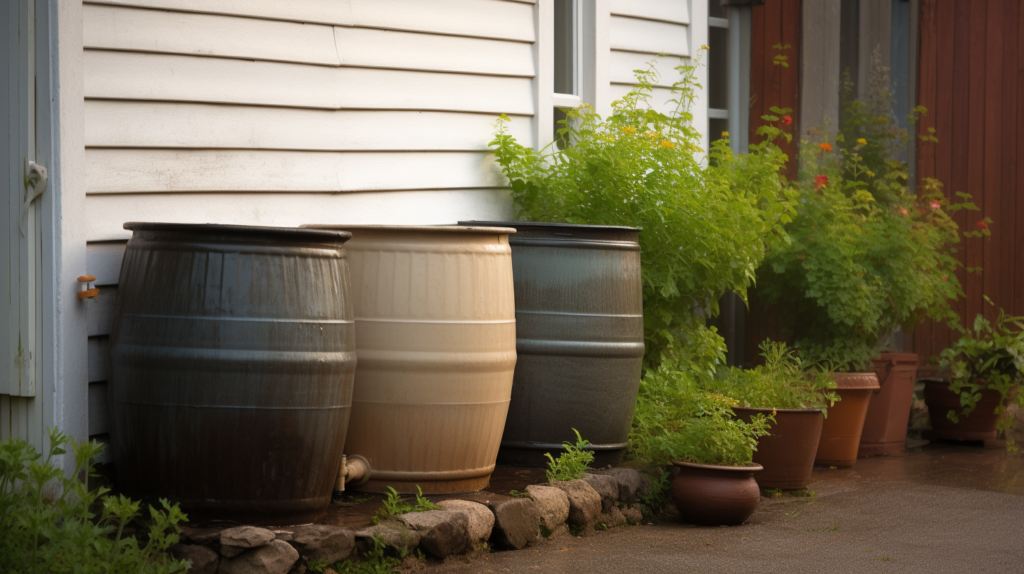
Organizations Supporting Rainwater Harvesting
Organizations supporting rainwater harvesting are instrumental in promoting and advocating for this sustainable water source. They collaborate with government agencies and provide resources and information to homeowners and communities interested in implementing rainwater harvesting systems.
Three notable organizations that play a significant role in supporting rainwater harvesting include the Clean Water Act United States, the Environmental Protection Agency United States, and the National Conference of State Legislatures (NCSL).
The Clean Water Act United States, a federal law, aims to protect and restore the quality of the nation’s water resources. It provides guidelines and regulations to prevent pollution and promote responsible water use, including rainwater harvesting.
By aligning rainwater harvesting practices with their mission, the Environmental Protection Agency United States provides educational materials and technical assistance, ensuring the protection of human health and the environment.
The National Conference of State Legislatures (NCSL), a bipartisan organization, serves as a platform for state legislators to exchange ideas and policies. They support rainwater harvesting by providing information on state-specific regulations and legislation related to water use and conservation.
These organizations, along with the International Rainwater Harvesting Alliance (IRHA) and similar groups, are crucial in promoting the benefits of rainwater harvesting and working towards its widespread adoption.
Through their efforts, they raise awareness, encourage policy changes, and provide valuable resources to individuals and communities interested in implementing rainwater harvesting systems. By supporting rainwater harvesting, these organizations contribute to water conservation, sustainability, and the responsible use of natural resources.
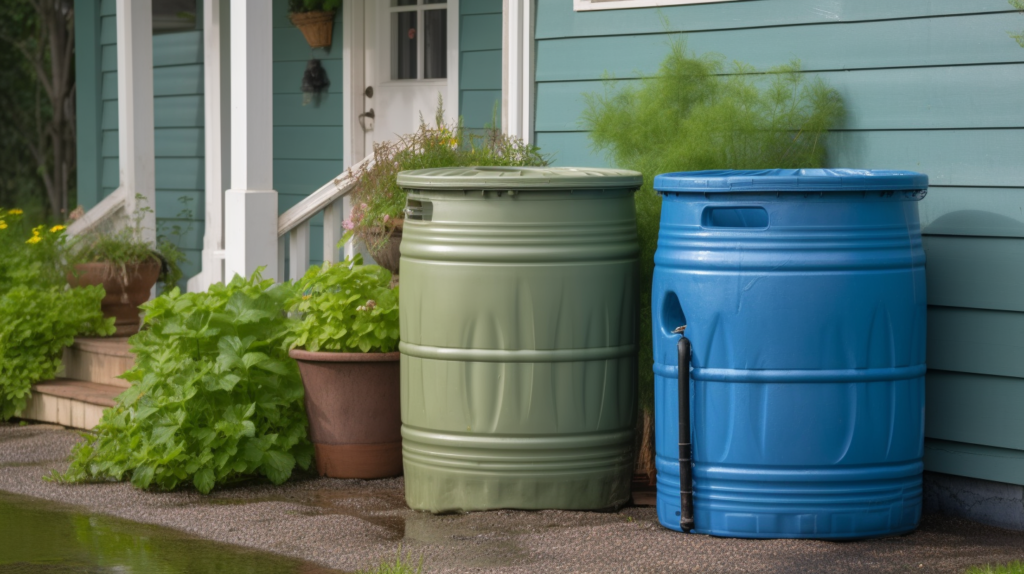
Reasons for Rainwater Harvesting Regulations
Rainwater harvesting regulations are put in place for several important reasons.
One major reason is the need to update outdated statutes and building codes that were established before rainwater harvesting became popular. These old laws may not consider the benefits and advancements in rainwater harvesting technology, so regulations help ensure that these systems are properly accounted for and regulated.
Another crucial reason for rainwater harvesting regulations is to ensure water safety. It’s essential that harvested rainwater is treated before use to prevent any potential health risks associated with using untreated water.
By implementing regulations, authorities can ensure that proper treatment methods are followed, safeguarding the health of individuals who rely on rainwater for various purposes.
Preserving the water cycle is another motivation behind rainwater harvesting regulations. By regulating the process, authorities can ensure that the natural water cycle isn’t disrupted.
This helps maintain a balance in the ecosystem, preventing any negative impacts on the environment and ensuring sustainable water management.
Additionally, regulations are in place to balance the use of rainwater with other water sources, such as well water. This approach ensures a fair distribution of water resources and prevents overuse of a single source.
By implementing regulations, authorities can encourage responsible water usage and prevent any potential conflicts over water allocation. Understanding these motivations behind rainwater harvesting regulations is crucial for homeowners looking to implement such systems.
It’s important to navigate the legalities and make informed decisions. Consulting reputable resources like the Environmental Protection Agency (EPA) can provide guidance on water purification and compliance with regulations, ensuring that your rainwater harvesting system is both environmentally friendly and compliant with the necessary regulations.
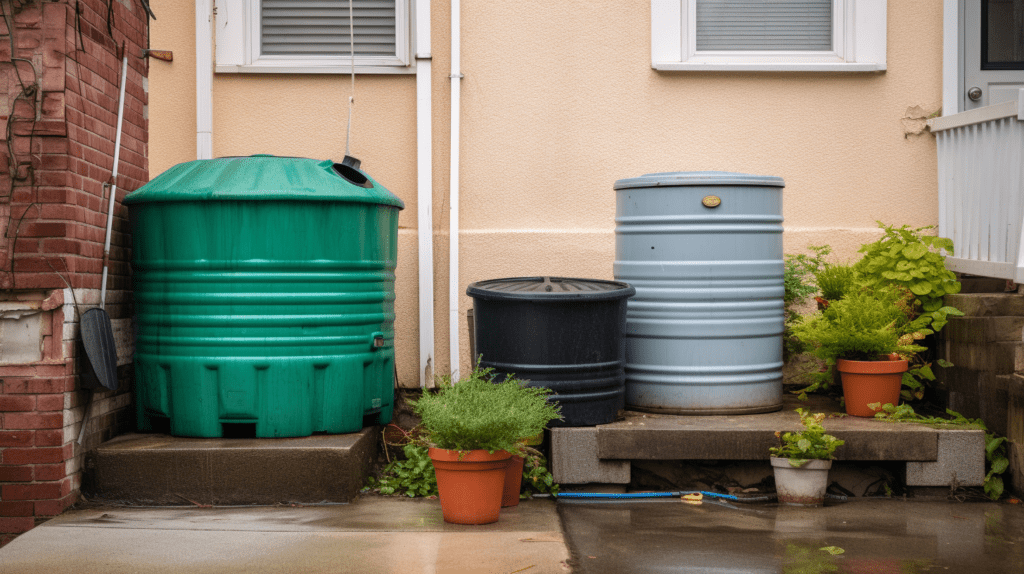
Rainwater Harvesting Regulations by State
Rainwater harvesting regulations vary by state, but it’s important to check if it’s regulated in your state. States like Colorado, Utah, Nevada, Illinois, and Arkansas have stricter regulations against rainwater harvesting.
However, in many states, rainwater harvesting is encouraged by the government. Homeowners are often free to use rainwater that falls on their property as it’s considered a valuable resource that belongs to them. It’s worth noting that rainwater harvesting isn’t expected to become illegal, and in fact, more states are adopting it and providing incentives for its implementation.
Organizations like ARCSA work closely with government organizations to support rainwater harvesting and promote its benefits. The practice of rainwater harvesting is driven by factors such as stormwater retention and the need for water availability.
By collecting and storing rainwater, homeowners can reduce their reliance on traditional water sources and contribute to water conservation efforts.
In states where rainwater harvesting is encouraged, individuals can take advantage of various techniques and systems to collect rainwater, such as rain barrels, cisterns, and rooftop collection systems. These methods allow for the efficient collection and storage of rainwater, which can then be used for various purposes such as irrigation, landscaping, and even indoor use with proper treatment.
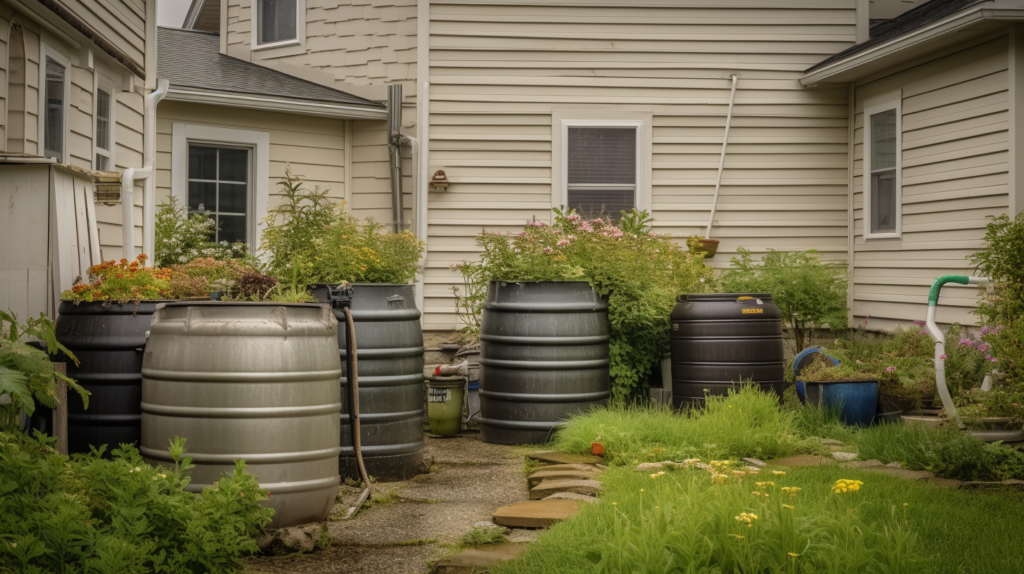
Frequently Asked Questions
Q: Is it legal to collect rainwater in the US?
A: Rainwater harvesting is generally legal in most states, though a few states like Colorado and Utah have stricter regulations. However, more states are recognizing its benefits and encouraging its use.
Q: What are the benefits of rainwater harvesting?
A: Rainwater harvesting allows you to conserve water, reduce reliance on municipal water supplies, and save money on water bills. It can be used for irrigation, gardening, and indoor non-potable use with proper filtration and treatment.
Q: Are there any states that discourage rainwater harvesting?
A: While some states like Colorado and Utah have stricter regulations, many states actively encourage rainwater harvesting as a valuable resource. More states are adopting policies and incentives to promote its use.
Q: What is the future of rainwater harvesting laws in the US?
A: The future looks promising with potential for relaxed regulations and increased support for rainwater harvesting. Expansion of laws to more states, introduction of incentives, and integration into building codes are all possibilities.
Q: What organizations support rainwater harvesting?
A: Organizations like the Clean Water Act United States, the Environmental Protection Agency United States, and the National Conference of State Legislatures play a significant role in promoting and supporting rainwater harvesting practices.
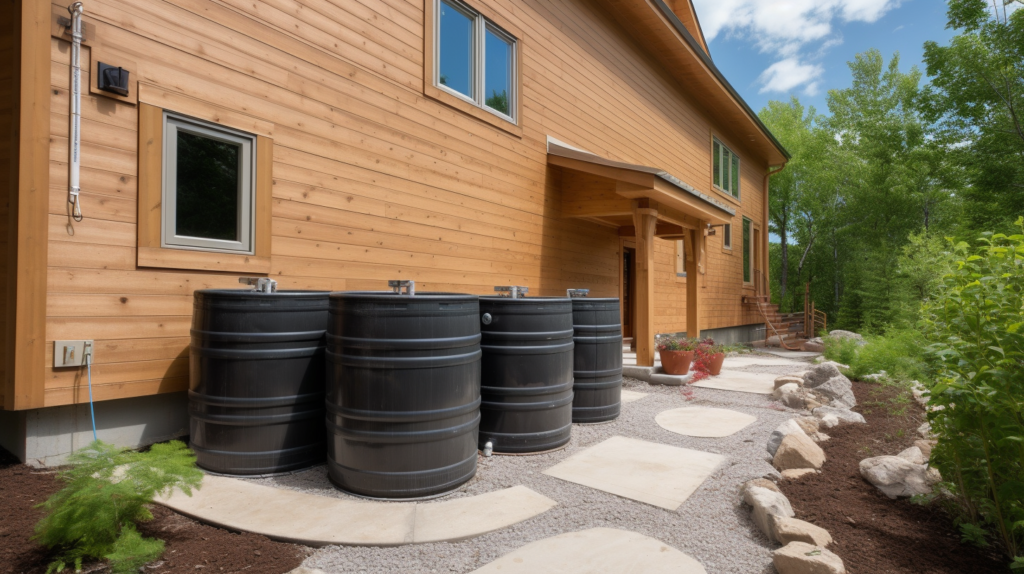
Conclusion
So, is it illegal to collect rainwater in your state? In most states, the answer is no.
While there are a few exceptions with heavy regulations, many states actually encourage rainwater harvesting as it’s seen as a resource belonging to property owners.
The future of rainwater harvesting looks promising, with more states adopting it and providing incentives.
So go ahead and start collecting rainwater to reap its benefits!
ABOUT THE AUTHOR
Angie Montgomery is the co-founder of Monday Day Prepping. She and her husband Bill have been "prepper's" since 2008. When she's not helping manage the homestead, she enjoys teaching her two boys how to cook and make natural alternatives to cleaners and other household items.

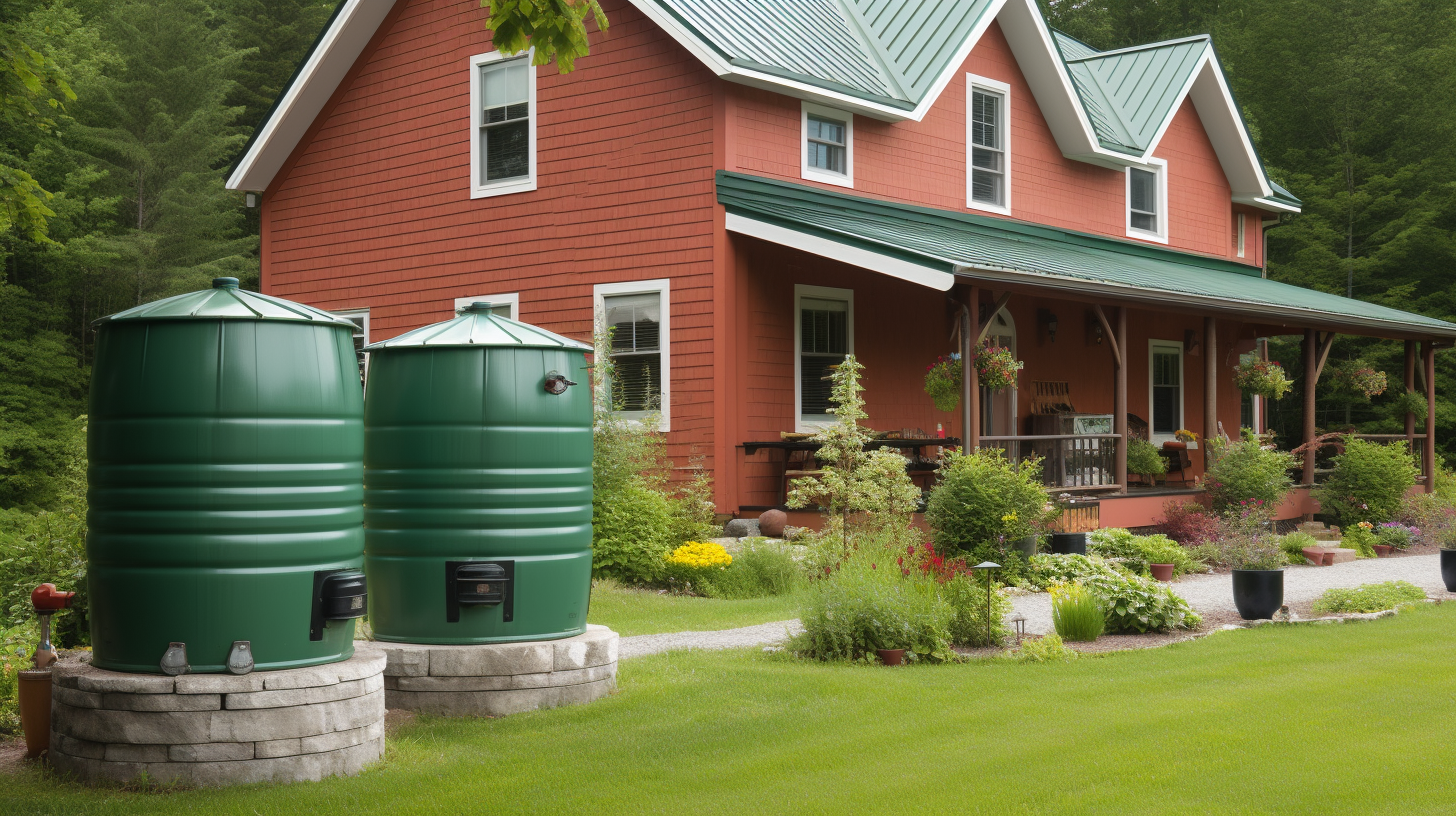
0 Comments